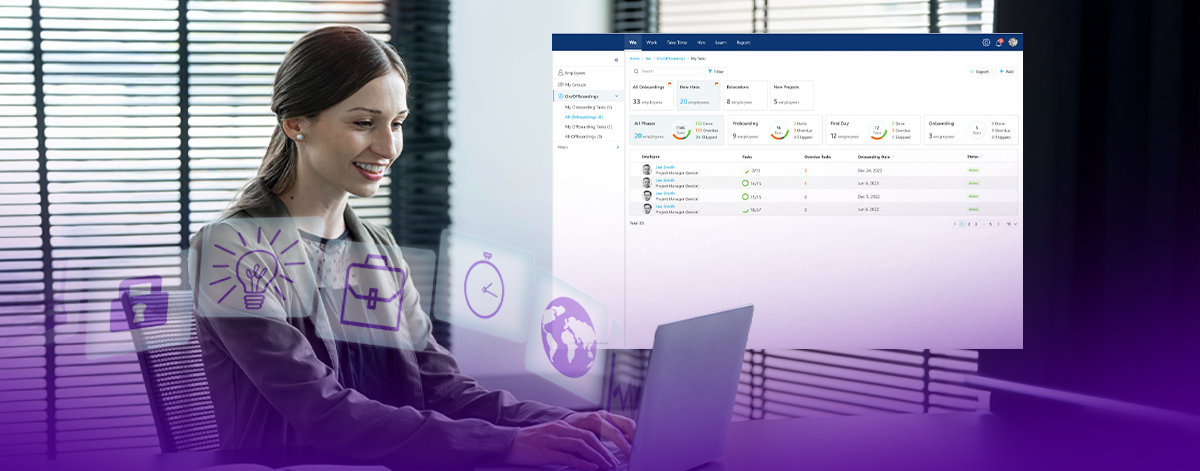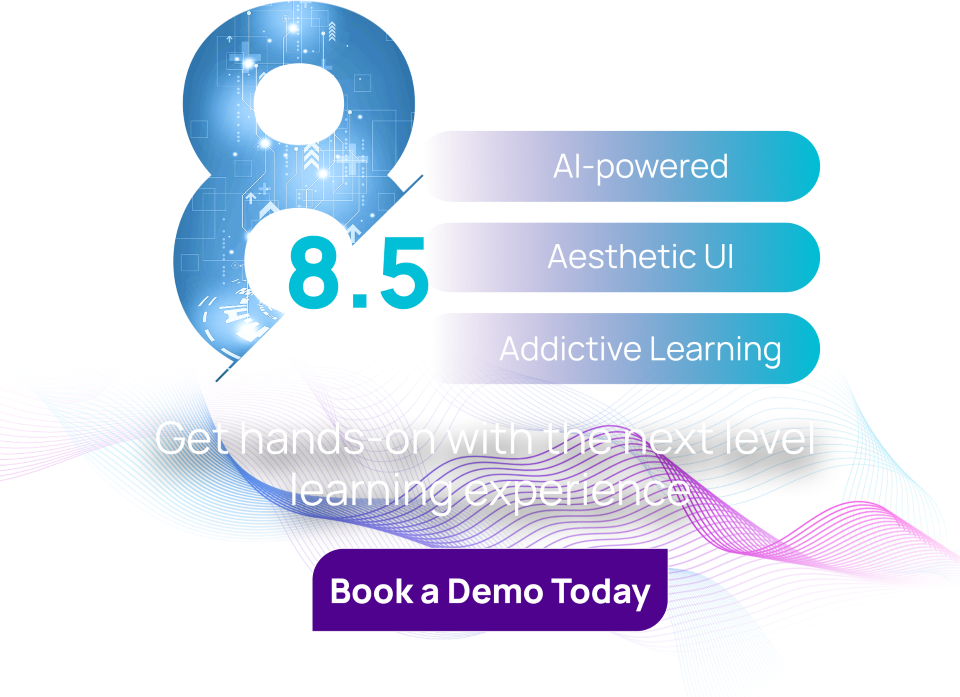
Why Banks Need a Robust LMS for Compliance and Skills Training
October 10, 2025
Extended Enterprise LMS: Training Beyond Your Workforce
October 31, 2025Table of contents
The banking industry is undergoing a rapid transformation. With increased regulatory requirements, evolving customer expectations, and a demand for greater transparency, financial institutions face a unique challenge: balancing compliance with trust-building. At the heart of this challenge lies the need for specialized learning and development systems. While many industries rely on corporate learning management systems (LMS) for training, the banking sector requires a more tailored solution – a dedicated Banking LMS.
This article examines LMS in banking in detail, exploring why banks require a specialized LMS, how it differs from traditional corporate LMS platforms, and the critical role it plays in building compliance and fostering customer trust. We’ll also look at how LMS in banking is empowering banks to deliver impactful learning, enhance compliance, and strengthen their customer relationships.
Why the Banking Industry Needs a Specialized LMS
Every industry values training, but banking is unique in its scale of compliance, risk management, and the customer interaction it demands. Unlike retail or manufacturing, banking is heavily regulated with strict laws covering everything from anti-money laundering (AML) and data protection to ethical conduct and customer service standards.
A generic corporate LMS may offer tools for course hosting, assessments, and tracking. However, it often lacks the depth required to handle:
- Compliance-Heavy Learning: regular updates aligned with changing regulations.
- Risk Mitigation: training employees to recognize fraud, cyber threats, and compliance breaches.
- High-Stake Customer Interaction: building soft skills, empathy, and trust for frontline staff.
- Audit-Ready Records: maintaining verifiable proof of compliance training completion.
LMS in banking is designed with industry-specific requirements that serve for bank employee learning while safeguarding their reputation and maintaining customer confidence.
Corporate LMS vs. Banking LMS: The Key Differences
To understand why a Banking LMS is essential, let’s compare it with a corporate LMS:
Aspect | Corporate LMS | Banking LMS |
Training focus | General employee development (leadership, onboarding, soft skills) | Compliance-driven, customer-centric, risk management, and regulatory training |
Updates | Static courses updated occasionally | Dynamic, frequent updates aligned with regulations (AML, KYC, GDPR, PCI DSS) |
Data handling | Standard reporting and analytics | Advanced compliance reporting, audit trails, and risk dashboards |
Audience | Employees across industries | Bankers, tellers, advisors, compliance officers, and IT staff |
Impact | Employee productivity and growth | Employee productivity, regulatory adherence, risk reduction, and customer trust building |
The difference is clear: While a corporate LMS is broad, a Banking LMS is deeply specialized and designed to meet the high-stake demands of financial institutions.
The Foundation of Customer Trust in Banking
For banks, compliance is not just about avoiding penalties; it’s about building customer trust. In the financial services industry, customers entrust their most sensitive information and assets to an institution.
Trust is earned when individuals feel confident that their bank operates ethically, protects their data, and prioritizes their interests.
Customer trust is built through four critical dimensions:
- What – Trust grows when banks demonstrate transparency, accuracy, and compliance.
- How – Trust is reinforced through customer interactions, empathetic communication, and secure practices.
- Why – Customers trust banks that align with their values and protect them from risks like fraud and data breaches.
- When – Trust is tested in moments of need: during disputes, crises, or regulatory changes.
An LMS in banking plays a central role in preparing employees for these moments, ensuring that they understand and embody the bank’s values when serving customers.
The Role of LMS in Building Compliance and Trust
A dedicated Banking LMS supports institutions in four critical ways:
- Compliance at Scale: With regulations constantly changing, banks must ensure that their employees are up to date. A Banking LMS automates compliance training, delivers microlearning for updated and new rules, and tracks completion to ensure audit readiness.
- Risk Mitigation: Through scenario-based learning, gamified simulations, and case studies, employees learn how to identify red flags including fraudulent transactions, suspicious activities, and phishing attempts.
- Customer-Centric Training: From enhancing communication skills to teaching responsible lending practices, a financial LMS enables employees to serve customers better. Consistent training ensures customers encounter knowledgeable, ethical, and trustworthy representatives during every interaction.
- Data-Driven Assurance: With advanced analytics, banks can track employee performance, monitor compliance risks, and identify skill gaps. This visibility prepares employees and also reassures regulators and customers that the institution is proactive.
How Tenneo LMS Transforms Learning for Banks
Tenneo LMS is designed with the needs of modern banks in mind. It goes beyond traditional LMS functionality by aligning banking compliance training with trust-building initiatives, ensuring banks are well-equipped for the future.
Here’s how Tenneo LMS delivers value:
- Regulatory Agility: Tenneo provides rapid updates to compliance training, ensuring banks stay aligned with AML, KYC, GDPR, and other evolving regulations. Employees receive timely content, reducing compliance risks.
- Experiential Learning: The platform integrates scenario-based modules, gamified quizzes, and role-playing exercises, enabling employees to not only read policies but also practice real-world decision-making.
- Audit-Ready Reporting: With advanced reporting tools, Tenneo ensures every compliance activity is tracked, stored, and ready for regulators’ scrutiny. This saves time, reduces penalties, and builds institutional credibility.
- Customer Trust Enablement: Through training in empathy, communication, and ethical conduct, Tenneo ensures banking staff deliver service that reassures customers and strengthens loyalty.
- Scalable and Secure: As a cloud-based solution, Tenneo LMS scales across global banking teams, maintaining robust data security to meet industry standards.
Benefits for Banking Partners
Banks partnering with Tenneo LMS report clear advantages:
- Reduced compliance risks through timely, mandatory training completion.
- Improved audit scores with verifiable compliance records.
- Higher customer satisfaction driven by consistent, well-trained staff interactions.
- Employee confidence in handling sensitive or high-stake scenarios.
- Cost efficiency with centralized training accessible across branches and geographies.
By aligning bank employee learning with regulatory and customer trust goals, Tenneo enables banks to transform compliance from a burden into a competitive advantage.
Why It Matters for You
Compliance and customer trust are two sides of the same coin in the banking industry. One ensures safety, the other ensures loyalty. A specialized LMS in banking is the bridge that connects compliance with customer trust, preparing employees to meet regulations while serving customers with integrity and confidence.
With its compliance-driven, customer-centric approach, Tenneo LMS is enabling banks to stay ahead of regulatory challenges, mitigate risks, and build long-term customer trust. For financial institutions navigating today’s complex environment, Tenneo LMS is more than a learning platform; it’s a strategic partner in growth and reputation.
If you’re part of the banking industry, whether in compliance, HR, L&D, or customer service, you already know the stakes are high. If you’re still unsure just how LMS can support you, feel free to contact Tenneo consultants for your tailored resolution.





